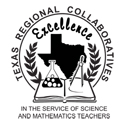 The Beginning Teacher and Induction Mentoring (BTIM) program administered by the Texas Regional Collaboratives (TRC) supports early career math and science teachers to increase their retention and effectiveness. Since the program began in the fall of 2009, the TRC has provided 1,973 new science and mathematics teachers in 487 school campuses across the State of Texas with mentoring support from 919 veteran educators. The program encompassed 27 projects and was funded by the Texas Education Agency through a grant to the UT’s Center for STEM Education in the College of Education.
The Beginning Teacher and Induction Mentoring (BTIM) program administered by the Texas Regional Collaboratives (TRC) supports early career math and science teachers to increase their retention and effectiveness. Since the program began in the fall of 2009, the TRC has provided 1,973 new science and mathematics teachers in 487 school campuses across the State of Texas with mentoring support from 919 veteran educators. The program encompassed 27 projects and was funded by the Texas Education Agency through a grant to the UT’s Center for STEM Education in the College of Education.
The need for induction and mentoring programs for new teachers, like BTIM, has never been greater. With over one-third of all public school teachers having more than 20 years of experience preparing to leave the profession due to retirement compounded by over 40% of new teachers leaving the profession within five years, a prescriptive measure must be put in place to stem the growing attrition rate. TRC BTIM mentor training is grounded in a research-based protocol that incorporates three key aspects of an effective mentoring program: instructional-related support, procedural assistance, and emotional encouragement. This support is grounded in an effective observation and feedback system that allows formative feedback through a non-evaluative relationship between the mentor and mentee. BTIM funds are used to support mentor stipends and training but are also used to cover substitute costs for both mentors and mentees to allow for multiple classroom observations. According to a new teacher involved in the Texas A&M System BTIM project, “Having to observe my mentor, be observed, and even be video observed was all very helpful. Getting to watch myself on video actually came in useful to see some things that I could work on.”
The response to the BTIM program has been extremely positive from all stakeholders including mentees, mentors, and school district administrators. For example, Lonnetta Walker, a Galveston County project teacher who was mentored by master teacher Dr. Terry Talley of UT Medical Branch stated that, “if it wasn’t for the program, I would have probably decided to teach another subject…I have learned so much; my 5th graders did remarkably well on the 2010 science test.” While the TRC BTIM program provided support to teachers to improve the most typical needs for all beginning teachers such as procedures, classroom management, and time management, TRC BTIM mentors went beyond these general needs with specific support provided for teaching mathematics and science more effectively. That additional instructional support was noted by many mentees as a big success of the program as compared to what their school districts were able to offer. As one mentee from the Texas A&M Corpus Christi project noted, “I feel that the mentor program provided by (my school) was a good support system for learning how the school worked, but Mrs. Roehl’s mentoring helped me understand how to break down science concepts for enhanced student learning.” Other new teachers commented that while they met with their campus assigned mentor infrequently, the requirement that TRC mentors visit with their mentees in face-to-face meetings at least once a week ensured that they had the support they needed.
Mentors in the TRC BTIM program can be practicing classroom teachers, instructional coaches, or retired master teachers. TRC mentors have found that they themselves are benefiting from the program as much as their mentees. One mentor from the Our Lady of the Lake University project in San Antonio stated, “As the mentor, I reflect daily on my own teaching in order to provide specific experiences/examples to share with my mentees. Through my own reflections, I have learned new things about my own teaching that I have never noticed before.”
Administrators also saw the benefit of the TRC BTIM program. Stan Simonson, Principal of St. Mary’s Academy Charter School in Beeville, Texas, commented on the work of mentor Nancy Cavallin, “Ms. Cavallin’s work with our new 1st and 2nd year teachers has given them the confidence that usually doesn’t surface until after their 3rd year in the classroom.”
Effective induction and mentoring programs like TRC BTIM can help ameliorate the attrition rate for teachers and most importantly, improve their effectiveness. This is especially true for beginning science and mathematics teachers, where highly qualified teacher shortages are most acute. With continued support from the TEA, the TRC BTIM program will make a significant difference for hundreds of new teachers as they embark on a lifelong career motivating students in mathematics and science and providing them with the knowledge and skills they need to pursue careers in high need STEM fields.
Please direct questions regarding the BTIM Program to Amy Werst.





